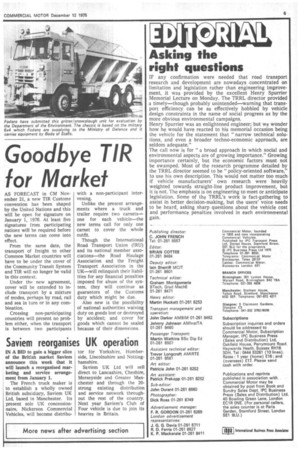Asking the right questions
Page 7

If you've noticed an error in this article please click here to report it so we can fix it.
IF any confirmation were needed that road transport research and development are nowadays concentrated on limitation and legislation rather than engineering improvement, it was provided by the excellent Henry Spurrier Memorial Lecture on Monday. The TRRL director provided a timely—though probably unintended—warning that transport efficiency can be as effectively hobbled by vehicle design constraints in the name of social progress as by the more obvious environmental campaigns.
Henry Spurrier was an enlightened engineer; but we wonder how he would have reacted to his memorial occasion being the vehicle for the statement that " narrow technical solutions, and even a broader techno-economic approach, are seldom adequate."
The call now is for "a broad approach in which social and environmental aspects are of growing importance." Growing importance certainly, but the economic factors must not be swamped. Most of the research programme detailed by the TRRL director seemed to be "policy-oriented software," to use his own description. This would not matter too much if vehicle manufacturers' own research were heavily weighted towards straight-line product improvement, but it is not. The emphasis is on engineering to meet or anticipate legislation. Some of the TRRL's work is fact-gathering to assist in better decision-making, but the users' voice needs to be heard, asking sharp questions about the vehicle cost and performance penalties involved in each environmental gain.














































































